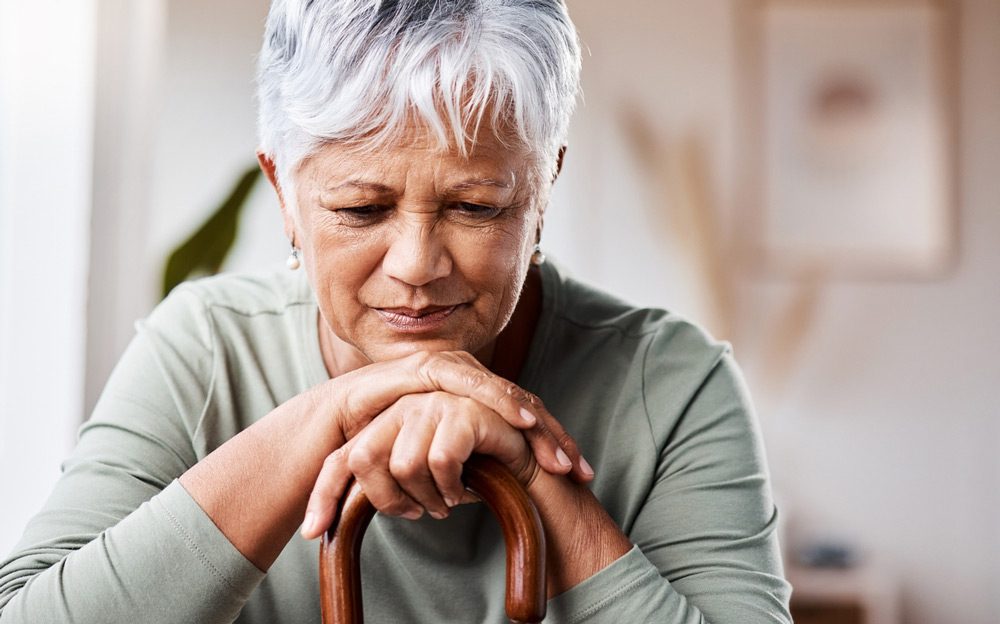Although the majority of mental health disorders begin when a person is young, this does not mean that older adults cannot develop mental illnesses for the first time in their golden years. The most common of these are depression, dementia, anxiety, and substance use disorders. At Palms Behavioral Health in Harlingen, Texas, we treat older adults who are facing mental health struggles, and we want to give you the tools to reduce your risk of developing mental illness as you age.
Risk Factors for Mental Illness in Older Adults
As a person ages, they are more likely to experience specific challenges that can increase their risk of developing a mental health disorder at an advanced age. Some of these risk factors include:
- Physical health conditions such as high blood pressure, obesity, heart disease, or a weak immune system
- Loneliness and isolation, which can be made worse by the death of a loved one, mobility issues, or cognitive decline.
- Elder abuse
Preventing Mental Illness
It’s not possible to prevent every single thing that can trigger mental illness in an older adult, but some choices decrease the risk:
- Staying active. Not only will physical activity help you to maintain your physical well-being, but it can also decrease symptoms of depression and anxiety. You don’t have to run a marathon, but find something you enjoy doing that gets you moving. This could include activities such as swimming, walking, bicycling, exercise classes, gardening, or dancing.
- Avoiding alcohol and other drugs. This one obviously helps to prevent a person from developing an addiction to substances, but also reduces the risk of medical issues, some forms of dementia, depression, and anxiety.
- Having a strong support system. Many people rely heavily on their relationship with their spouse for companionship and emotional support. There is nothing wrong with this, but many older adults find themselves with no one else to turn to after their partner dies. For this reason, it is important to maintain or develop friendships and connections with other people, besides your partner, such as your faith community, a senior center, your local library, gym, or other places where people gather.
- Seeing your primary care doctor regularly for checkups. Medical issues are far easier to treat if they are caught early. Having frequent appointments with your doctor will also allow them to become more familiar with you, so that if something changes, they are more likely to notice and ensure you receive prompt help.
- Reaching out for help at the first sign of a mental health concern. In the past, it was sometimes stigmatized for people to take medications or go to therapy for their mental health. Today, it is far more acceptable for people to get the support they need and deserve. The sooner you start treatment, the faster you are likely to recover and the more likely it is that you will recover completely.
Signs of Mental Illness in Older Adults
Each mental health condition has different symptoms, but some of the signs you might notice that would indicate a need to seek professional support include:
- Changes in your diet or sleep patterns
- Feeling more worried or stressed
- Having thoughts of suicide
- Not feeling positive emotions
- Having ideas or emotions that feel strange
- Increased use of substances
- Feeling angry or irritable more often
How to Help Older Adults Facing Mental Illness
If you have reason to believe that an older person in your life might be experiencing mental health symptoms, you can take the following steps to help them get professional support:
- Ask questions such as How are you feeling? Is anything making you feel anxious or sad? Do you feel more tired or stressed than usual? Be sure to listen attentively to their answers.
- Don’t shy away from asking about suicidal ideation. Older adults are at particularly high risk of suicide, so they need to be asked if this is something they are considering, to keep them safe. Ask questions such as Have you had any thoughts about ending your life? Do you have a plan for how you would end your life?
- If your loved one says they are considering suicide, do not leave them alone until they are able to be safe. Try to remove whatever items they say they would use to end their life, such as pills, firearms, blades, etc. Connect them to help by calling or texting 988, to reach the Suicide & Crisis Lifeline, where trained crisis counselors can help them develop a safety plan and find long-term support in their local area
- Don’t dismiss changes as a normal part of the aging process. While it is normal for people to slow down and have some memory changes as they age, these are not the same level of skill loss and memory issues one would see in a person with dementia.
- Don’t assume that it’s normal for older adults to be frail and ill. Many seniors have good physical health, and even those who don’t may experience distress as a result of losing mobility, health, and connectedness to other people. No one should have to face that alone.
- Involve their doctor and pharmacist. Changes may be the result of the medications they are taking, or there may be an undetected medical issue that needs to be addressed. Make sure their doctor and pharmacist have an up-to-date list of medications your loved one is taking and that they have had recent lab work and other tests related to the challenges they are expressing.
- Get an evaluation. If there is no clear medical cause for your loved one’s symptoms, they may need help finding mental health services that specialize in treating older adults.
Believe that your older loved one is capable of learning and changing. At Palms Behavioral Health, we provide trauma-informed care for older adults experiencing mental or behavioral health issues that require around-the-clock care. We offer mediation management and education, therapy, 24/7 nursing support, discharge planning, family support, and education.







